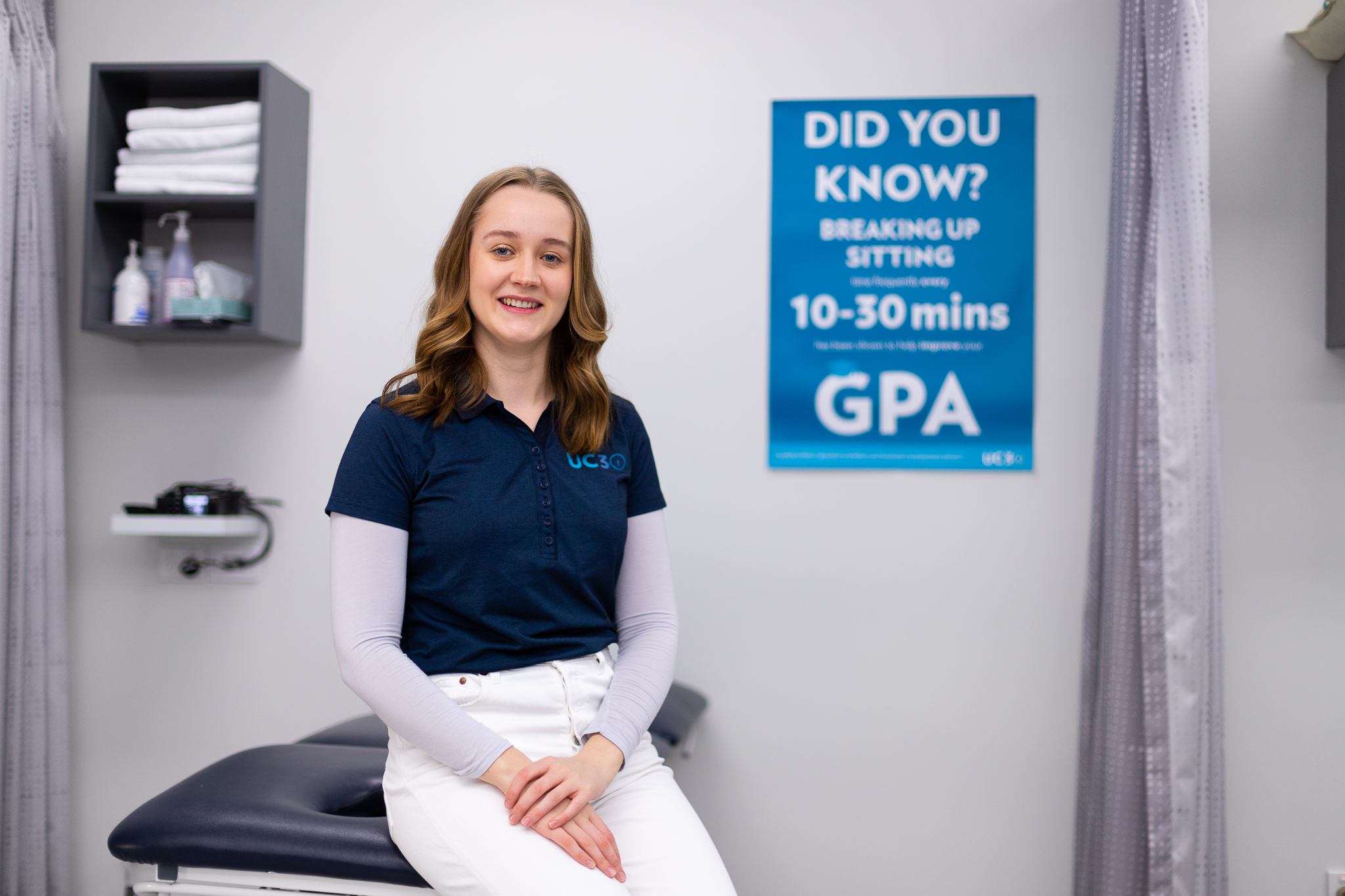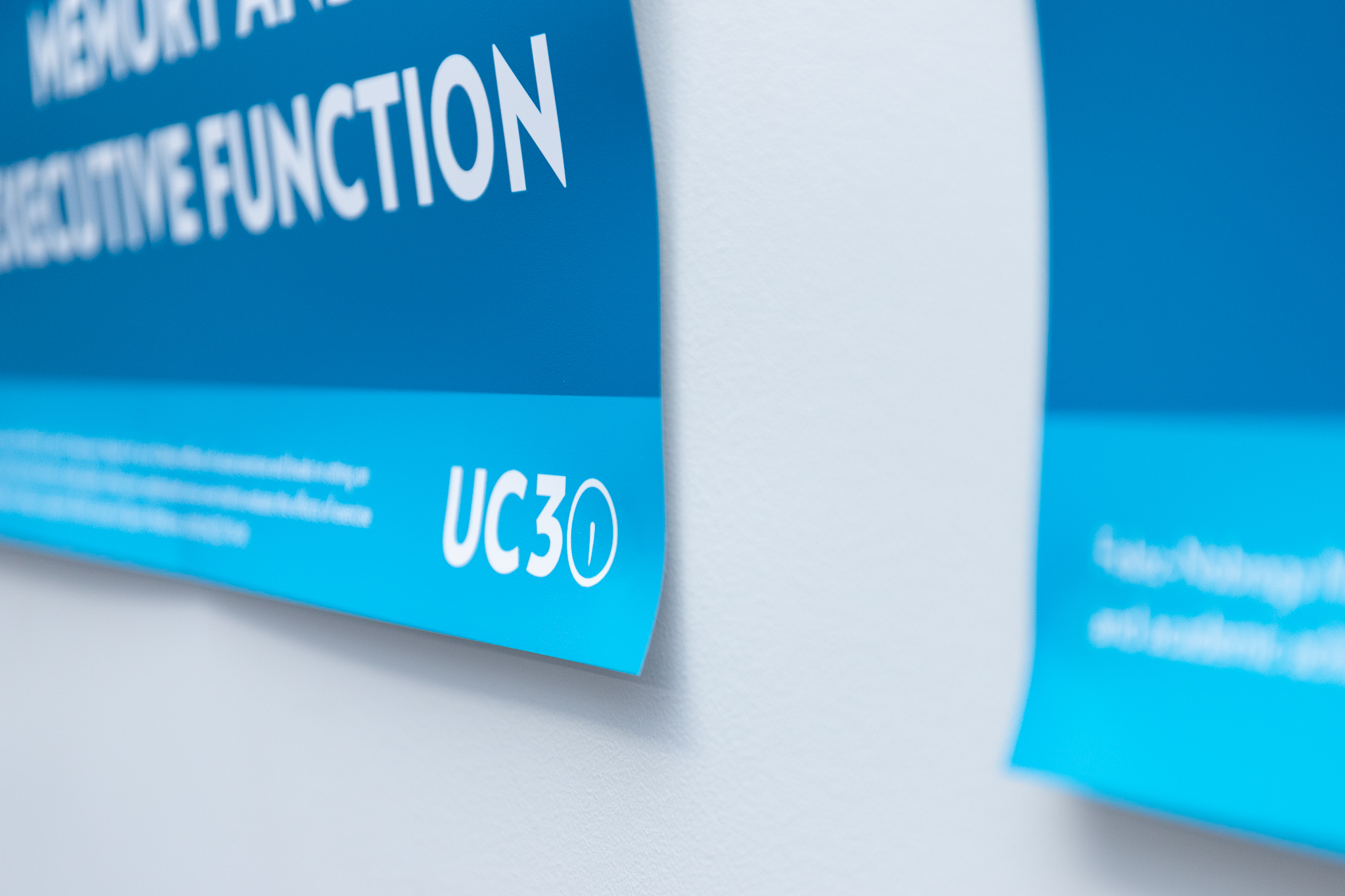Emma Larouche
31 March 2023: A physiotherapy study conducted at the University of Canberra has found that a series of interventions can reduce the time students spend sitting during lectures and study time.
Alice Martin, who this week graduated with a Bachelor of Physiotherapy (Honours) with first class honours, carried out the UC30 project under the supervision of Associate Professor Nicole Freene. In 2021, Ms Martin began exploring what interventions would be used in the study.
“Associate Professor Freene is very passionate about population health, and I’m interested in looking at how we can tackle health issues through preventative measures,” she said.
“There is a real issue with sedentary behaviour across adult populations in Western countries, which seems to be increasing in university students, so it’s a really good time to capture students before they head into the workforce and try to introduce habits that will reduce sitting time or sedentary behaviour.”

The pilot study was carried out in two phases, starting with a co-design process to develop ways to interrupt sitting time.
“Students and staff from the Faculty of Health were involved in two workshops and then we took the ideas from those workshops to six Faculty of Arts and Design students to bring them to life, producing a logo, posters, videos and PowerPoint slides, which formed the main component of our intervention,” Ms Martin said.
By the end of 2021, pre-intervention data in the form of a validated questionnaire, in which participating students provided responses about theirself-reported sedentary time, had also been collected.
Physiotherapy lecturers were trained to use the UC30 interventions across four course units during Semester One, 2022.
The interventions consisted of PowerPoint slides, with facts and positive messaging, used at 30-minute intervals during selected lectures and tutorials. Lecturers were also encouraged to play videos produced for the study during the short breaks in content delivery.
Posters were displayed in areas that Physiotherapy students were likely to frequent, such as lecture theatres, corridors near tutorial rooms, and in cafes and bathrooms in common areas.
“We thought it was really important to use positive language, rather than fear tactics, as it seems to be more effective in the area of preventative health research,” Ms Martin said.
The attending students then completed the same questionnaire and post-intervention data was collected.
“Overall, there wasn't a statistically significant change in total sedentary time, but we had a really exciting result – when we looked at self-reported study time separately, there was a 51-minute reduction in sitting,” Ms Martin said.
“Based on our results, it could be that the interventions reduce student sitting time by up to one hour a day when they're studying, which is really exciting because that's where our intervention was really aimed – to reduce sitting time during study.”

Staff and students provided feedback on the pilot project, highlighting positive outcomes from the interventions.
“Students were really excited about improvements to their learning, engagement and concentration,” Ms Martin said.
Associate Professor Freene and the research team will be conducting a follow-up study with all Faculties across the university in the near future.
“It looks like UC30 reduces students’ sitting time while studying, but we need to test this further,” Associate Professor Freene said.
“The UC30 intervention will be gradually implemented in each Faculty over the next two years as part of UC’s Sport Strategy. If results are positive, UC30 will improve the health and learning of our students, aiming for it to be sustainable over the longer term.”


